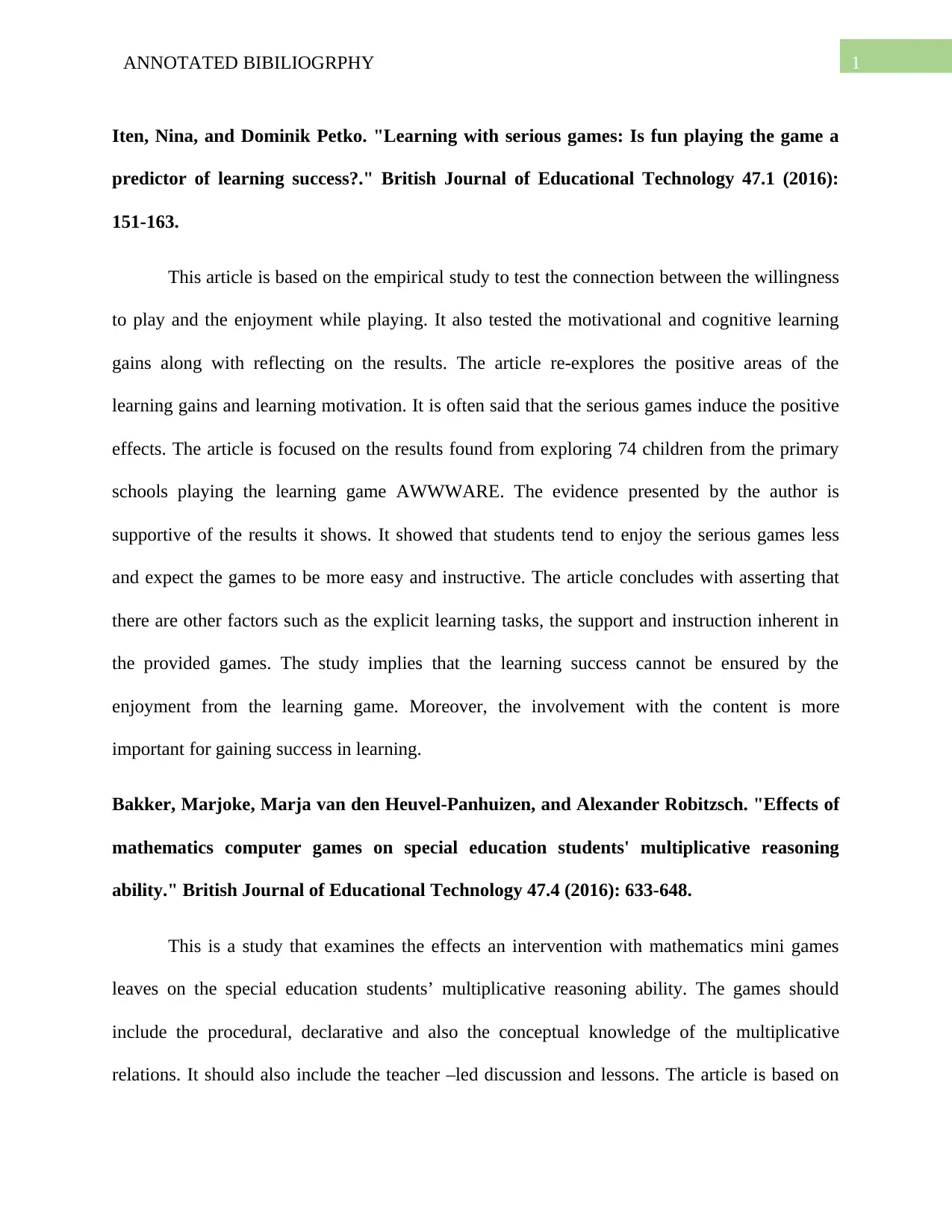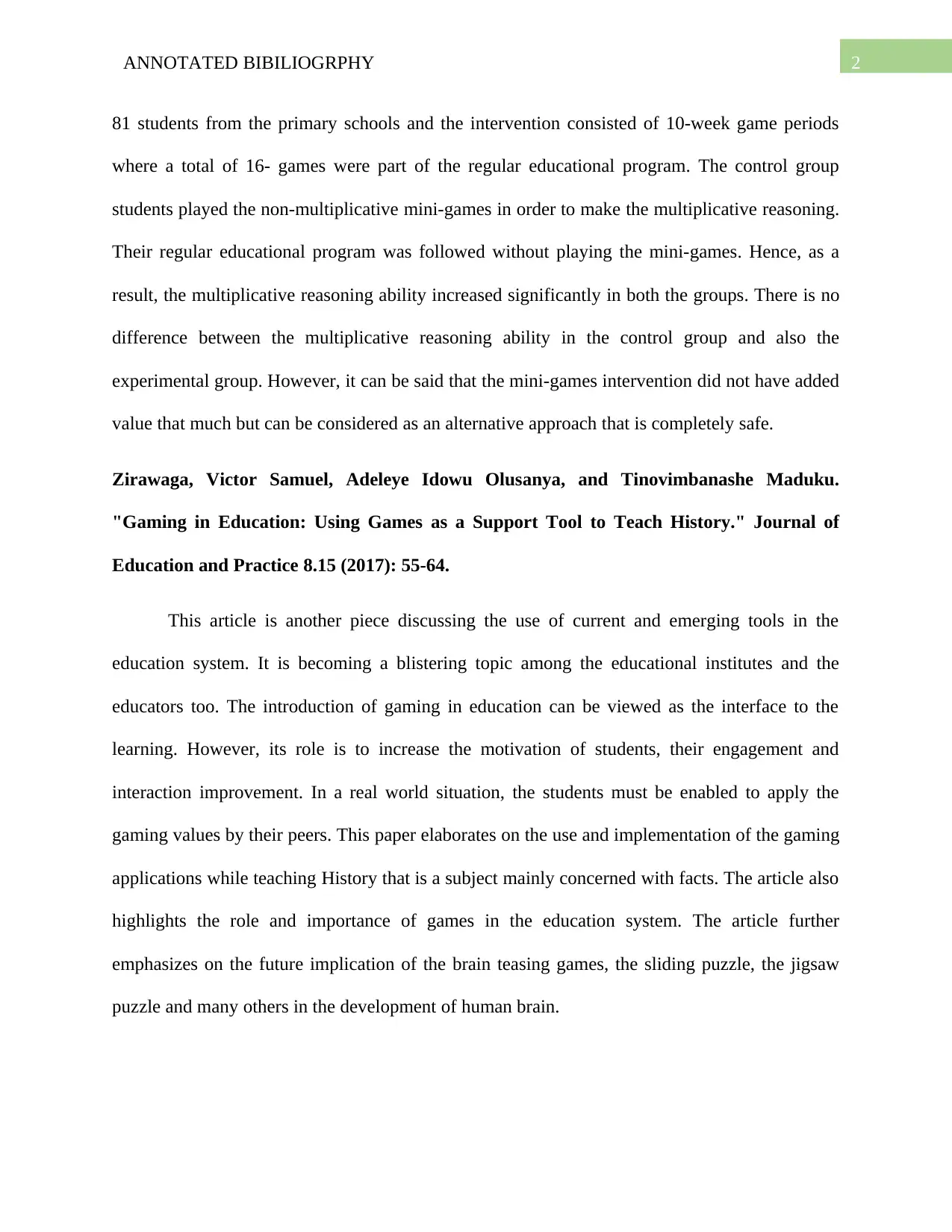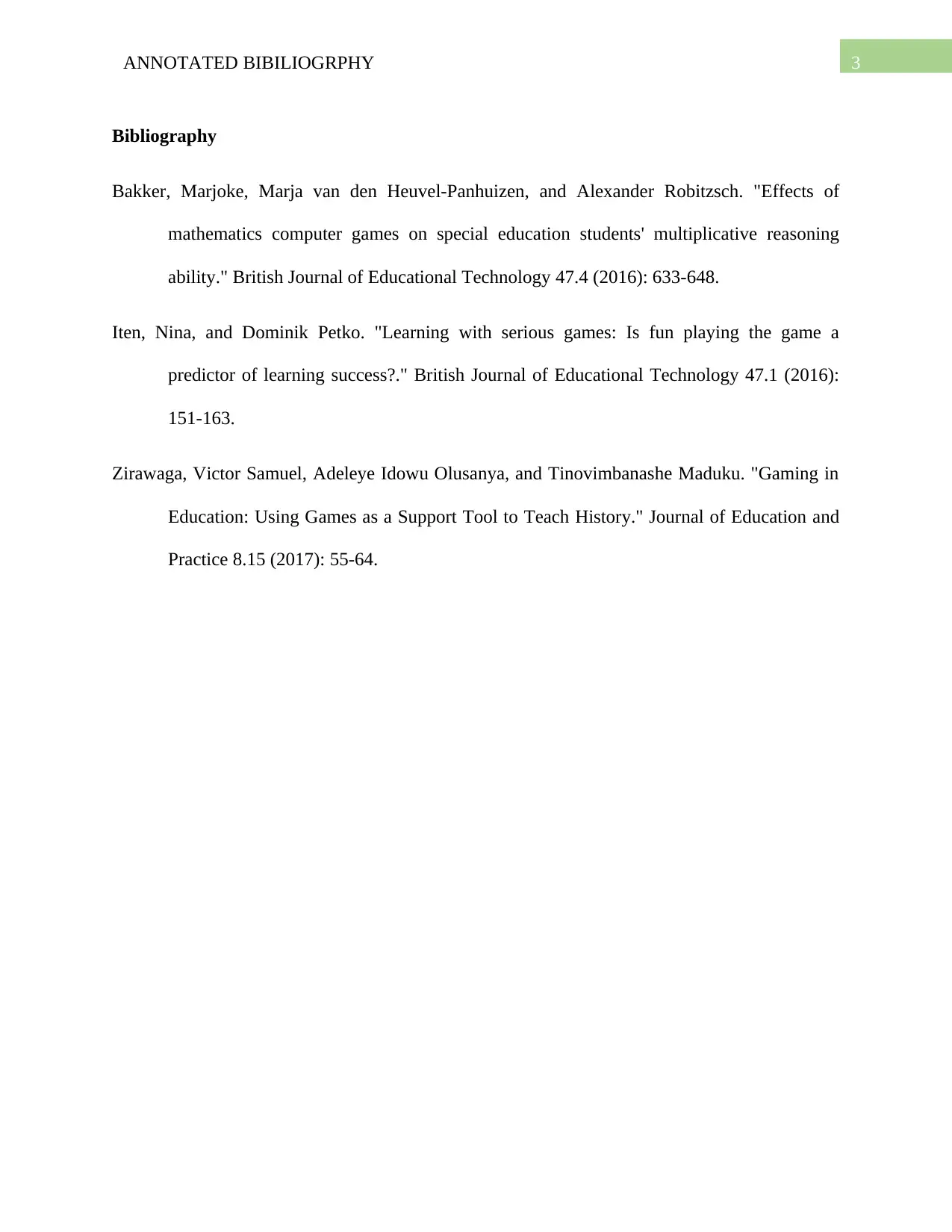Annotated Bibliography: The Role of Gaming in Education System
VerifiedAdded on 2023/04/06
|4
|679
|157
Annotated Bibliography
AI Summary
This annotated bibliography examines the role of gaming in education, focusing on articles that explore the impact of serious games on learning success, the effects of mathematics computer games on students' multiplicative reasoning abilities, and the use of games as a support tool for teaching history. It includes summaries of articles such as Iten and Petko's study on the connection between enjoyment and learning gains, Bakker, van den Heuvel-Panhuizen, and Robitzsch's research on mathematics mini-games, and Zirawaga, Olusanya, and Maduku's discussion on using games to teach history, highlighting the increasing interest in gaming as an interface to learning and its potential to enhance student motivation and engagement. Desklib offers a wealth of similar resources and solved assignments to aid students in their studies.
1 out of 4










![[object Object]](/_next/static/media/star-bottom.7253800d.svg)